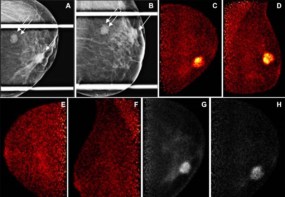
Finance, automotive, agriculture, telecoms and professional sports: these are just a few of the diverse industries being fundamentally disrupted by the inexorable rise of machine-learning technologies (more generally known as artificial intelligence or AI).
Machine-learning algorithms can solve problems by learning from experience, and without being explicitly programmed. In so doing, they can already control self-driving vehicles, spot plagiarized academic papers and translate the spoken word from one language to another.
And that’s just for starters. The long-game looks even more compelling.
RaySearch Laboratories certainly thinks so. The Stockholm-based oncology-software company is currently making significant investments in machine-learning and “big-data” – a fusion of technologies and applications that promises to transform radiation therapy and other cancer-treatment modalities such as chemotherapy and surgical intervention.
“Machine learning has the potential to support and augment radiation oncology teams while freeing up their time,” explains Fredrik Löfman, head of machine learning and algorithm at RaySearch. “The power of sharing knowledge through machine-learning models will have a huge impact. Any clinic could potentially generate the same tumour target volume and radiation treatment plan as the best clinics in the world do. Radiation oncologists and medical physicists will all learn from each other through machine-learning models.”
Knowledge transfer
With these opportunities in mind, Löfman is intent on scaling RaySearch’s in-house capability and collective domain knowledge in machine learning. Right now, he heads up a dedicated division of machine-learning engineers located in RaySearch’s Stockholm headquarters.
“Ours is a multidisciplinary programme,” Löfman explains. “We have mathematicians, computer scientists and physicists with backgrounds in different industries [such as automotive and finance] that are further along with machine-learning technologies than healthcare. Cross-fertilization with these sectors is crucial.”
This open, outward mindset is evidenced in several high-profile R&D collaborations that, RaySearch hopes, will fast-track its innovation in machine-learning technologies. On the academic side, RaySearch is funding joint research at the KTH Royal Institute of Technology in Stockholm (automation of radiation therapy), while clinical partners include the Princess Margaret Cancer Centre in Toronto (automated treatment planning and model training) and Massachusetts General Hospital in Boston (deep learning for target-volume delineation and analytics prototypes).
“We have a history of collaboration with The Princess Margaret and Mass Gen,” says Löfman, “so when we started the machine-learning division it was natural for us to partner with these institutions.”
Partnership = progress
The tie-up with The Princess Margaret, Canada’s largest radiation-therapy facility, has been in place for more than a decade and focuses on the use of machine learning to automate treatment planning in the radiation-therapy clinic. The goal is twofold: to deliver workflow efficiencies versus manual treatment planning (with plans delivered in minutes rather than hours or days) and to generate personalized treatment plans tailored to the unique needs of each patient.
It’s been a productive collaboration. Last year, for example, RaySearch licensed The Princess Margaret’s AutoPlanning technology, a custom AI and machine-learning system that harvests information from a database of proven high-quality radiation-therapy plans – effectively learning from and optimizing against thousands of prior clinical treatments.
AutoPlanning itself is the result of a six-year cross-disciplinary initiative involving researchers at The Princess Margaret and Toronto’s Techna Institute. The development work was led by Tom Purdie, a medical physicist at The Princess Margaret, and his colleague Chris McIntosh, a computer scientist at the hospital.
“Machine learning is a natural fit for automating the complex treatment-planning process,” explains Purdie. “It will enable us to generate highly personalized radiation treatment plans more efficiently, [thereby] allowing clinical resources or specialist technical staff to dedicate more time to patient care.”
Ultimately, Purdie reckons that machine learning will help to lower the cost of cancer treatment. “We’re going to reach a stage – in the not-too-distant future – where we will be relying on machine-learning technologies to deliver the highest-quality cancer care,” he adds.
Into the clinic
RaySearch, for its part, is pressing ahead with the roll-out of advanced machine-learning capabilities into the radiation-oncology clinic. In December, the vendor will unveil RayStation 8B*, the latest release of its treatment-planning software with machine-learning-automated organ segmentation (quantitative 3D visualization) and machine-learning-automated treatment planning.
“We are evaluating the automated treatment planning with several clinics just now, so we are getting more and more data on how it performs,” says Löfman. “As a vendor, we can point to the efficiencies of automation, we can point to the consistency inherent to the approach. But in terms of treatment quality and patient outcomes, it’s the clinics that will need to provide the real-world evaluation and validation.”
The collaboration with The Princess Margaret has broadened in scope too, with the two partners signing an agreement in July to jointly develop RayCare, the vendor’s flagship oncology information system (OIS).
Watch this space, says Löfman: “Ultimately, RayCare OIS will use machine learning to improve workflow efficiency, manage resource allocation and enhance quality assurance across different treatment modalities – medical oncology, radiation oncology and surgical oncology.”
* Subject to regulatory approval in some markets
Fredrik Löfman and Tom Purdie will present a live webinar on “Machine learning and automation in radiation oncology” on 26 September 2018. Register now to view the webinar.




